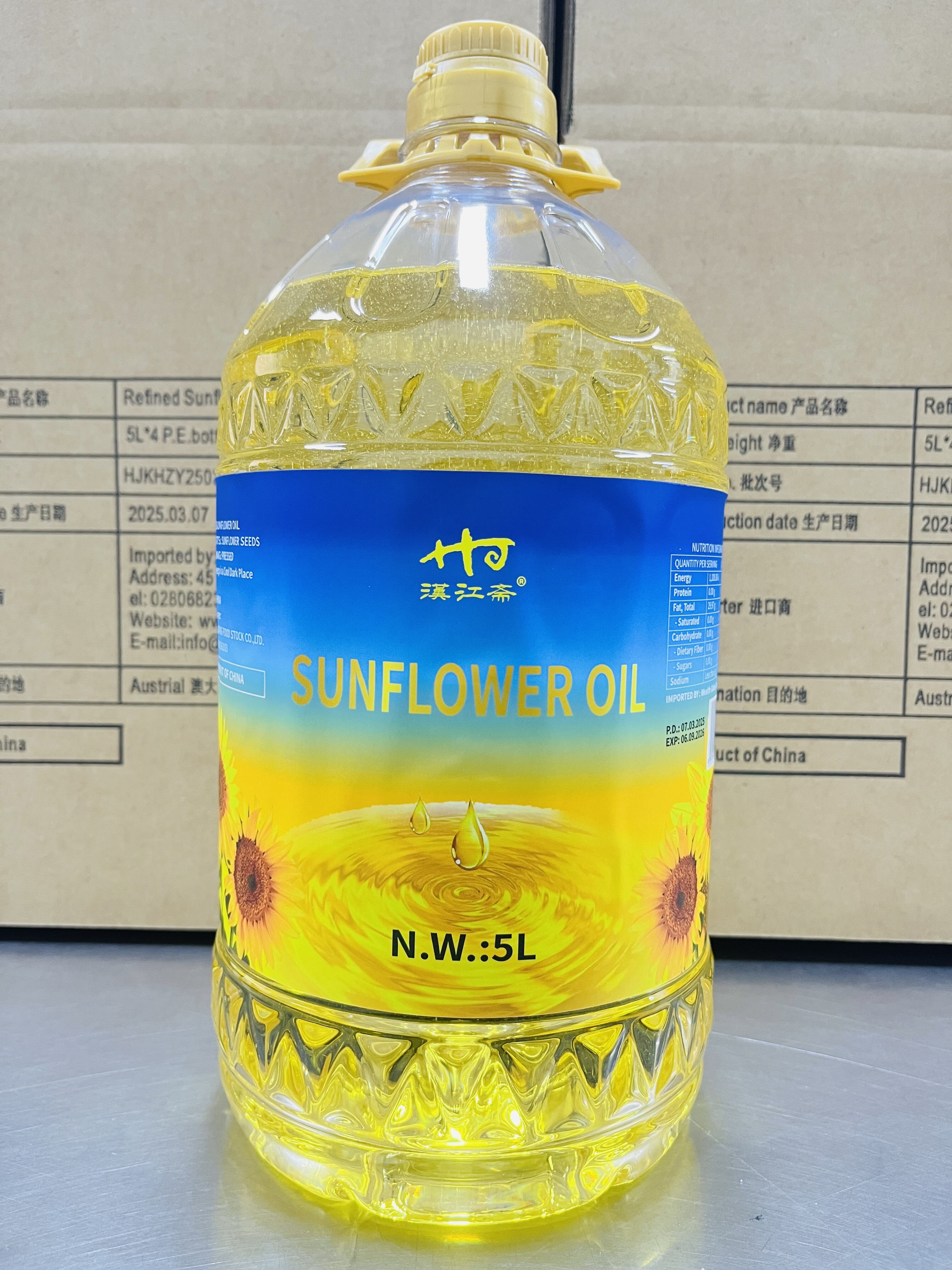The Superior Choice for High-Heat Cooking
When it comes to selecting the ideal oil for grilling and roasting, sunflower oil stands out as a remarkable option that combines versatility, health benefits, and exceptional cooking properties. This light-colored, neutral-flavored oil has become increasingly popular among both home cooks and professional chefs for its ability to withstand high temperatures while maintaining its nutritional integrity.
Derived from the seeds of the sunflower plant, sunflower oil possesses unique characteristics that make it particularly well-suited for high-heat cooking methods. Its high smoke point, typically ranging between 440-450°F (227-232°C), ensures that it remains stable during intense grilling sessions and prolonged roasting times, making it an ideal companion for your culinary adventures.
Understanding the Science Behind Cooking Oils
Smoke Points and Stability
The effectiveness of cooking oil largely depends on its smoke point – the temperature at which it begins to break down and produce smoke. Sunflower oil's impressive smoke point means it can maintain its structure and nutritional benefits even under intense heat. This stability prevents the formation of harmful compounds that can occur when oils are heated beyond their smoke point, ensuring both safety and flavor in your grilled and roasted dishes.
When oils reach their smoke point, they begin to degrade, potentially releasing free radicals and developing off-putting flavors. Sunflower oil's resistance to such breakdown makes it an excellent choice for maintaining food quality and taste throughout the cooking process.
Chemical Composition Benefits
Sunflower oil contains a balanced profile of fatty acids, primarily consisting of polyunsaturated and monounsaturated fats. This composition not only contributes to its heat stability but also offers significant health advantages. The high concentration of vitamin E acts as a natural antioxidant, protecting both the oil and your food during high-temperature cooking.
The natural antioxidants present in sunflower oil help prevent oxidation during cooking, which is particularly important when exposing food to the intense heat of grilling or the prolonged heat of roasting. This protection helps maintain the nutritional value of your ingredients while ensuring optimal flavor development.

Mastering Grilling Techniques with Sunflower Oil
Proper Oil Application Methods
To maximize the benefits of sunflower oil in grilling, proper application techniques are essential. A light, even coating on both the food and grilling surface helps prevent sticking while promoting perfect sear marks. Using a brush or spray bottle, apply sunflower oil to room-temperature ingredients before they hit the grill, ensuring even coverage without excess oil that could cause flare-ups.
For optimal results, consider applying sunflower oil in multiple light layers rather than one heavy coating. This method allows for better control over the cooking process and helps achieve that desired golden-brown exterior while maintaining moisture inside the food.
Temperature Control and Timing
Understanding how to manage temperature when grilling with sunflower oil is crucial for achieving perfect results. While the oil's high smoke point provides a generous safety margin, maintaining appropriate heat levels ensures the best outcome. For most grilling applications, medium-high to high heat works well with sunflower oil, allowing for proper searing without burning.
Timing your oil application is equally important. Adding sunflower oil to cold ingredients helps it adhere better and allows for more even heating once on the grill. This technique is particularly effective for achieving those coveted grill marks while keeping foods juicy and flavorful.
Perfecting Roasting with Sunflower Oil
Optimal Roasting Temperatures
Sunflower oil truly shines in roasting applications, where its high smoke point and stability enable perfect results across a wide range of temperatures. For most vegetables and meats, roasting temperatures between 375-425°F (190-218°C) work exceptionally well with sunflower oil, allowing for proper caramelization without burning.
The oil's ability to distribute heat evenly helps achieve consistent results throughout the cooking process. Whether you're roasting root vegetables, poultry, or creating crispy potatoes, sunflower oil maintains its integrity while promoting beautiful browning and flavor development.
Coating and Seasoning Techniques
When roasting with sunflower oil, the right coating technique can make a significant difference in the final result. Tossing ingredients with sunflower oil in a bowl before arranging them on a roasting pan ensures even coverage and promotes uniform cooking. This method also allows for better incorporation of herbs and spices, as the oil helps them adhere to the food surface.
For larger cuts of meat or whole poultry, rubbing sunflower oil directly onto the surface helps create a crispy, golden exterior while keeping the interior moist. The oil's neutral flavor allows the natural tastes of your ingredients to shine through while providing the perfect medium for heat transfer.
Health and Nutritional Considerations
Nutritional Benefits
Beyond its excellent cooking properties, sunflower oil offers impressive nutritional benefits. Rich in vitamin E, an essential antioxidant, it helps protect cells from damage while supporting immune system function. The oil's favorable ratio of omega-6 to omega-3 fatty acids can contribute to a balanced diet when used as part of a varied cooking routine.
The presence of polyunsaturated fats in sunflower oil may help maintain healthy cholesterol levels when used as part of a balanced diet. Additionally, its vitamin K content supports bone health and proper blood clotting, making it a nutritious choice for everyday cooking.
Dietary Considerations
Sunflower oil's versatility extends to its suitability for various dietary preferences and restrictions. Being plant-based, it's naturally vegan and vegetarian-friendly. Its neutral flavor profile makes it an excellent choice for those who want to avoid strongly flavored oils that might overpower their dishes.
For those monitoring their fat intake, sunflower oil can be used efficiently in smaller quantities while still providing excellent cooking results. Its light nature and high heat stability mean a little goes a long way in most cooking applications.
Frequently Asked Questions
How Long Can Sunflower Oil Be Stored?
Sunflower oil typically maintains its quality for up to one year when stored properly in a cool, dark place. Once opened, it's best to use within 4-6 months for optimal freshness. Always keep the bottle tightly sealed and away from direct sunlight or heat sources to prevent rancidity.
Can Sunflower Oil Be Reused After Grilling?
While sunflower oil can be reused after grilling, it's important to strain out any food particles and store it properly. However, it's recommended to limit reuse to 2-3 times maximum, as repeated heating can degrade the oil's quality and nutritional properties.
Is Sunflower Oil Suitable for All Types of Grilling?
Sunflower oil is suitable for most grilling applications, including gas, charcoal, and electric grills. Its high smoke point makes it particularly versatile, though it's important to apply it properly and monitor cooking temperatures for the best results.

 EN
EN
 DA
DA
 AR
AR
 NL
NL
 FI
FI
 FR
FR
 DE
DE
 EL
EL
 HI
HI
 IT
IT
 JA
JA
 KO
KO
 NO
NO
 PL
PL
 PT
PT
 RU
RU
 ES
ES
 SV
SV
 TL
TL
 ID
ID
 SR
SR
 UK
UK
 VI
VI
 HU
HU
 TH
TH
 TR
TR
 FA
FA
 AF
AF
 MS
MS
 GA
GA
 MK
MK
 HY
HY
 KA
KA
 BN
BN
 LA
LA
 MN
MN
 NE
NE
 MY
MY
 KK
KK
 UZ
UZ
